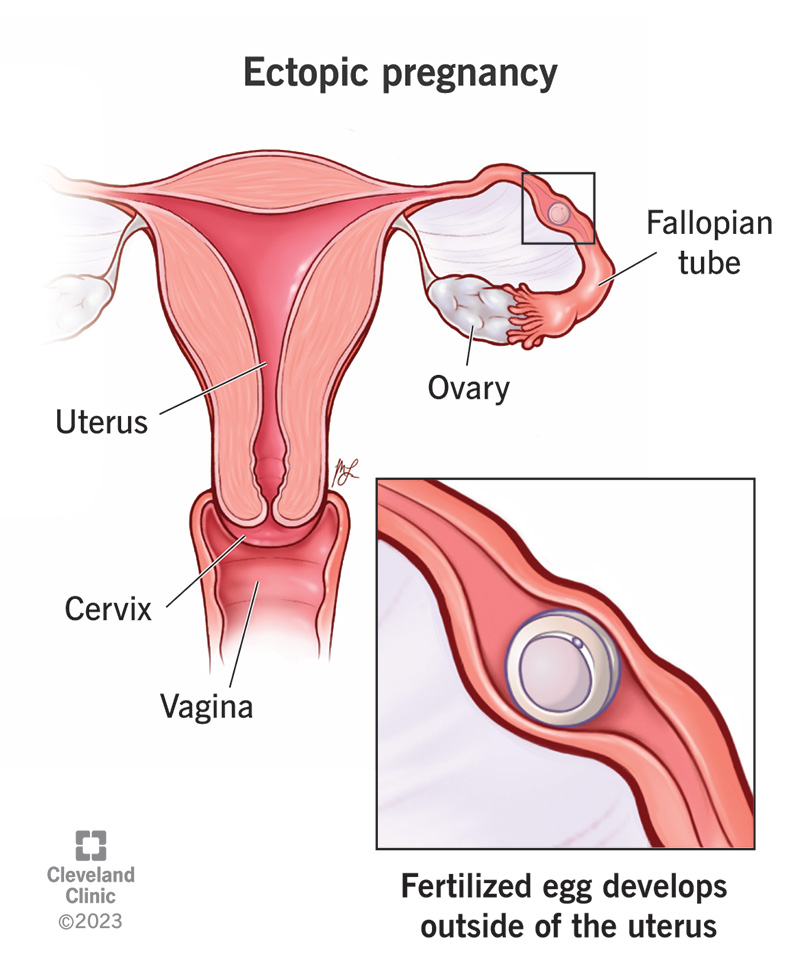Ectopic Pregnancy: Signs, Symptoms, and Treatment
An ectopic pregnancy occurs when a fertilized egg implants outside the uterus. This is a serious medical condition that can be life-threatening if not treated promptly.
Signs and Symptoms of Ectopic Pregnancy
The signs and symptoms of an ectopic pregnancy can vary depending on the location of the implantation. However, some common signs and symptoms include:
- Abdominal pain: This is the most common symptom of an ectopic pregnancy. The pain may be sharp, stabbing, or cramping. It may be located in the lower abdomen, pelvis, or back.
- Vaginal bleeding: This is another common symptom of an ectopic pregnancy. The bleeding may be light or heavy, and it may be accompanied by cramping.
- Nausea and vomiting: These are also common symptoms of an ectopic pregnancy. They may be accompanied by abdominal pain and vaginal bleeding.
- Shoulder pain: This is a less common symptom of an ectopic pregnancy. It occurs when blood from the ectopic pregnancy irritates the diaphragm.
- Lightheadedness or dizziness: This is a sign that the ectopic pregnancy is causing internal bleeding. It may be accompanied by other symptoms, such as abdominal pain, vaginal bleeding, and nausea and vomiting.
Risk Factors for Ectopic Pregnancy
There are a number of risk factors for ectopic pregnancy, including:
- Pelvic inflammatory disease (PID): This is an infection of the female reproductive organs. It can damage the fallopian tubes, which can increase the risk of ectopic pregnancy.
- Endometriosis: This is a condition in which the tissue that lines the uterus (the endometrium) grows outside the uterus. It can block the fallopian tubes, which can increase the risk of ectopic pregnancy.
- Previous ectopic pregnancy: Women who have had an ectopic pregnancy are at increased risk for another ectopic pregnancy.
- Tubal ligation: This is a surgical procedure to block the fallopian tubes. It is a permanent form of birth control, but it can increase the risk of ectopic pregnancy if the fallopian tubes are not completely blocked.
- Intrauterine device (IUD): This is a small device that is inserted into the uterus to prevent pregnancy. It is a highly effective form of birth control, but it can increase the risk of ectopic pregnancy if the IUD is not inserted correctly.
Diagnosis of Ectopic Pregnancy
An ectopic pregnancy is diagnosed based on a physical exam, a pelvic exam, and an ultrasound. The ultrasound will show the location of the fertilized egg.
Treatment of Ectopic Pregnancy
The treatment for an ectopic pregnancy is surgery. The surgery is usually performed laparoscopically, which means that it is done through small incisions in the abdomen. The surgeon will remove the ectopic pregnancy and the affected fallopian tube.
Complications of Ectopic Pregnancy
Ectopic pregnancy can lead to a number of complications, including:
- Rupture of the fallopian tube: This is a serious complication that can occur if the ectopic pregnancy is not treated promptly. The rupture can cause internal bleeding and shock.
- Infection: This is another serious complication that can occur if the ectopic pregnancy is not treated promptly. The infection can spread to the uterus and other organs.
- Infertility: Ectopic pregnancy can damage the fallopian tubes, which can lead to infertility.
Prevention of Ectopic Pregnancy
There is no sure way to prevent ectopic pregnancy. However, there are a number of things that women can do to reduce their risk, including:
- Avoiding pelvic inflammatory disease (PID): PID is a sexually transmitted infection that can damage the fallopian tubes. Women can reduce their risk of PID by using condoms during sex and by getting regular pelvic exams.
- Treating endometriosis: Endometriosis is a condition in which the tissue that lines the uterus (the endometrium) grows outside the uterus. Endometriosis can block the fallopian tubes, which can increase the risk of ectopic pregnancy. Women with endometriosis should be treated to reduce their risk of ectopic pregnancy.
- Using birth control: Birth control can help to prevent pregnancy, which can reduce the risk of ectopic pregnancy. Women who are not trying to conceive should use birth control.
Ectopic pregnancy is a serious medical condition that can be life-threatening if not treated promptly. If you have any of the signs and symptoms of ectopic pregnancy, it is important to see your doctor right away.
